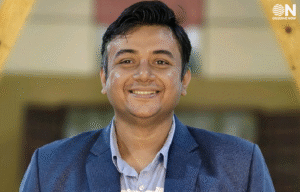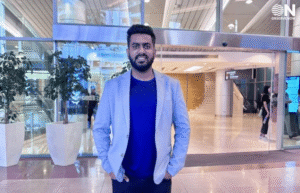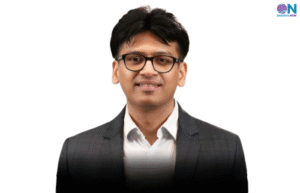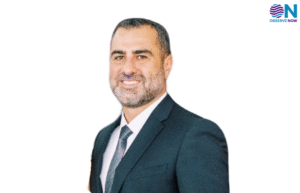New Delhi: In the contemporary landscape, the establishment of a Centre for Knowledge Sovereignty becomes increasingly pertinent, serving as a nucleus for safeguarding and advancing intellectual resources. In the era of rapidly evolving technology, knowledge sovereignty emerges as a critical concept, addressing the challenges posed by data-driven advancements.
As India progresses towards digital governance, envisioning the future involves not only harnessing technological innovations but also ensuring the sovereign control and ethical utilization of knowledge for the nation’s development and resilience in the digital age. The envisioned Centre for Knowledge Sovereignty plays a pivotal role in fostering a robust framework that safeguards intellectual assets and shapes the trajectory of digital governance in India. In this regard Shivani Babbar, ObserveNow interacted with Vinit Goenka, Former Spokesperson -BJP Delhi Pradesh, Former National Convenor IT Cell, BJP Secretary,Centre for knowledge Sovereignty (CKS).
Here are a few excerpts from the interview:
Can you provide an overview of the Centre for Knowledge Sovereignty (CKS) and its objectives? How do you see the role of CKS in the current landscape?
Centre for Knowledge Sovereignty (CKS) is a policy-oriented, independent, non-partisan, regional think tank committed to enhancing security, sovereignty and sustainability in India and throughout the Asian region. Established in 2011 under the chairmanship of Lt Gen D. B. Shekatkar (Retd.), we research and analyse technology policies and the domestic and international environment to shape the debate by connecting key experts on cybersecurity, cyber warfare, data sovereignty, privacy, critical infrastructure protection, geospatial technology and disruptive technologies.
In the current policy landscape, CKS plays a crucial role in shaping and influencing policy decisions, fostering innovation, and addressing challenges. We have been providing thought leadership by means of informed insights and recommendations to the government. We have been actively engaging with the policymakers to ensure that proper regulatory frameworks are in place to ensure data sovereignty while addressing potential challenges.
Through our recently launched program, Master Mentors Geo-enabling Indian Scholars (MMGEIS), in partnership with ESRI India, we aim to introduce students to the basics of geospatial technology. Our end goal is to foster innovation in the tech space. We have always championed the cause of indigenous innovation and hope to make an impact with our new initiative.
Given your experience as a spokesperson for the BJP Delhi, how do you think technology and knowledge sovereignty play a role in shaping political narratives and public discourse in today’s digital age?
In today’s digital age, technology and knowledge sovereignty play a pivotal role in shaping political narratives and public discourse. My experience as a spokesperson and as someone deeply involved in the tech space, particularly in areas like data sovereignty and geospatial technology, I understand the profound impact these elements have on the political landscape.
In the realm of public discourse, the responsible use of technology is essential. Social media and digital platforms have become powerful tools for communication, and political narratives can spread rapidly. All political parties must ensure responsible use of technology so that information disseminated aligns with facts and promotes constructive dialogue. Technology must be used to serve the interests of the nation while fostering a transparent and informed public discourse.
In your opinion, how can India enhance its knowledge sovereignty in the era of rapidly evolving technology, and what steps should be taken to safeguard sensitive information?
In my opinion, enhancing India’s knowledge sovereignty in the rapidly evolving technology landscape requires a multi-faceted approach that encompasses policy frameworks, investments in research and development, international collaborations, and robust cybersecurity measures.
We need to foster a culture of innovation and actively support and promote the use of indigenous technologies. CKS has taken an important step towards this with its MMGEIS initiative where we encourage young children to think differently and give them the right guidance and mentorship which will help them become future innovators.
With your extensive background in technology and governance, how do you envision the future of digital governance in India, and what role do you see for emerging technologies like artificial intelligence and blockchain?
Envisioning the future of digital governance in India involves understanding the transformative potential of emerging technologies. I see a future where digital governance becomes more efficient, inclusive, and transparent, driven by innovations in artificial intelligence (AI), blockchain, and other cutting-edge technologies.
AI can analyse vast amounts of data to inform evidence-based policy decisions. This data-driven approach can enhance the effectiveness of governance by identifying trends, predicting outcomes, and optimising resource allocation.
Blockchain can play a pivotal role in creating a secure and tamper-resistant digital identity system. This can simplify processes like document verification and authentication, reducing fraud and enhancing the efficiency of public services. It can also enhance transparency in various government processes, such as procurement, land records, and financial transactions.
However as digital governance evolves, we must understand that there are also challenges like AI-driven threat detection and blockchain-based encryption which must be addressed to safeguard sensitive data. Robust cybersecurity measures have become imperative. We must ensure holistic integration of emerging technologies to enhance efficiency, transparency, and inclusivity. The key is to adapt policies, invest in infrastructure, and build a skilled workforce to harness the full potential of these technologies for the benefit of the Indian population.
What are your views on the current state of cybersecurity in India, and what measures do you believe should be taken to strengthen the nation’s cyber defences?
I recognise the critical importance of cybersecurity in safeguarding the nation’s digital infrastructure and sensitive information. The current state of cybersecurity in India involves both strengths and challenges, and addressing these issues is crucial to ensure a resilient and secure digital ecosystem.
The rapid digitisation and increasing connectivity have expanded the attack surface, making India more susceptible to cyber threats. Cyberattacks, including ransomware and phishing, have become more sophisticated and targeted. The Digital Personal Data Protection Act, 2023, the National Cyber Security Coordinator (NCSC) and the National Critical Information Infrastructure Protection Centre (NCIIPC) are significant measures that the government has taken to ensure cybersecurity and protect the personal data of citizens. However, despite these steps, there is a continued need to develop a skilled cybersecurity workforce. Bridging the skill gap through education, training programs, and collaboration with industry is essential.
Additionally, protecting critical infrastructure, including power grids, financial systems, and healthcare, is paramount. Strengthening the cybersecurity defences of these critical sectors is vital to national security. For this, we must encourage the development and adoption of indigenous cybersecurity solutions. Supporting homegrown technologies not only enhances self-reliance but also provides tailored solutions that align with the specific needs of the Indian context.


























